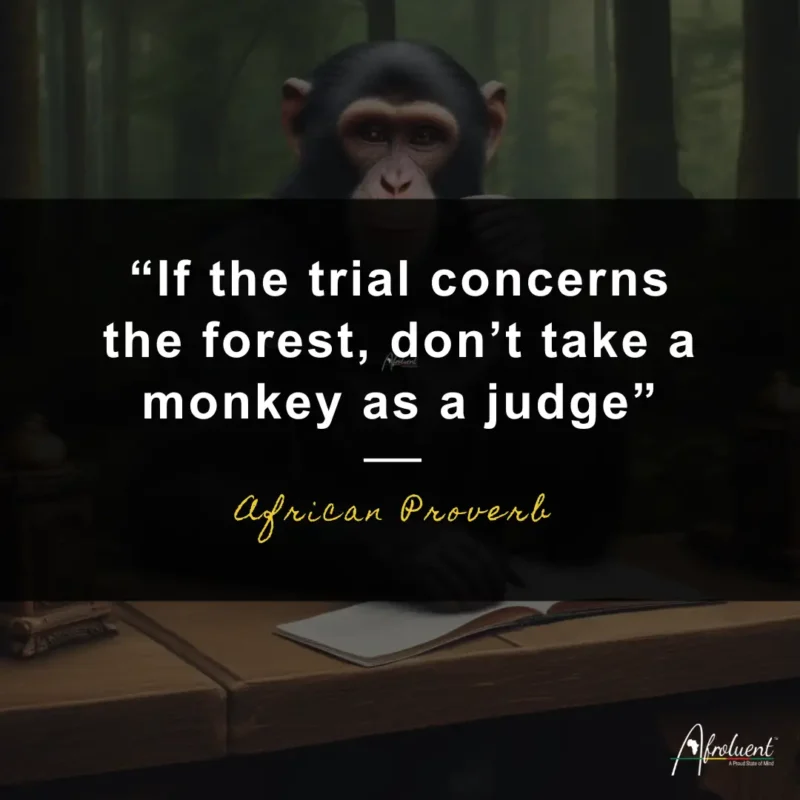African Quotes and Proverbs
If the trial concerns the forest, don’t take a monkey as a judge

“If the trial concerns the forest, don’t take a monkey as a judge.”
African proverb and quote.
“If the trial concerns the forest, don’t take a monkey as a judge.” This proverb warns against appointing someone lacking objectivity or biased as a judge or decision-maker in circumstances requiring impartiality. In this proverb, the “forest” represents the thing or circumstance undergoing assessment or determination. The “monkey” represents a person too involved or attached to the issue at hand to judge impartially.
Let’s say you disagree on a matter concerning a forest. It might concern who has the right to manage resources or protect the animals . You now need an impartial third party to assist you settle this dispute, someone who can hear all sides out and make a well-informed choice that benefits all parties.
You should take heed of this important piece of advice from the proverb, “If the trial concerns the forest, don’t take a monkey as a judge”. Don’t let someone with a personal stake in the outcome and close ties to the forest be the one making the decision. Why? This proverbial monkey, who stands in for that individual, is probably biased and might not be able to make an objective choice.
Monkeys live in the forest, and their entire lives revolve around it. They have a deep connection to the forest and rely on it for food, shelter, and survival. So, if there’s a disagreement about the forest, a monkey would have a hard time being objective and considering all perspectives fairly. The monkey’s own interests in the forest would heavily influence its judgment, making it difficult to be a neutral third party.
Conclusion
The proverb further implies you should choose someone not directly connected to the forest. Someone who has no personal stake in the outcome. This individual would more likely view the problem objectively and make a judgment based on facts, reason, and fairness, rather than personal prejudices or interests influencing them.
The saying also emphasizes the need of having an unbiased and objective decision-maker when making significant decisions or judgments. Someone who is very attached to the issue at hand, like the monkey in the forest, may be unable to see the larger picture or judge all views equally.
In conclusion, this proverb promotes impartiality and justice in decision-making processes. By following this advice, we boost our chances of reaching a reasonable and equitable decision that considers the interests of all parties involved.
